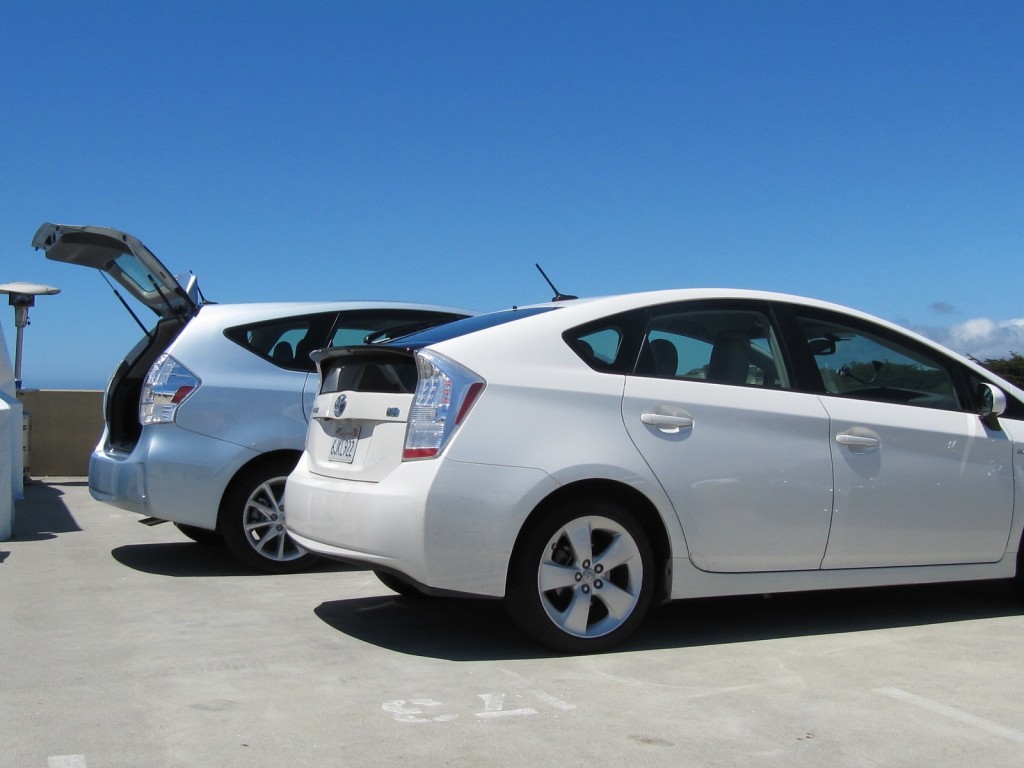Fuel efficiency is on every automaker's mind, and will be through at least 2025.
Toyota sells the most fuel-efficient gasoline vehicle on the U.S. market, the 2012 Prius hybrid. It's rated at 51 mpg city, 48 mpg highway, and a combined 50 mpg by the EPA.
Tougher competitors
But the competition is hardly standing still. Several makers now offer cars that achieve 40 mpg highway, and a variety of plug-in vehicles will join the 2012 Chevy Volt and 2012 Nissan Leaf in the years to come.
So what's Toyota doing in the face of surging competition?
The answer appears to be: doubling down on the Prius hybrid line.
More Prius models
The 2012 Toyota Prius V wagon will soon arrive at dealerships, the 2012 Toyota Prius Plug-In Hybrid will follow next March, and a compact Prius C model is expected to appear at the 2012 Detroit Auto Show for launch later next year.

2012 Toyota Prius V station wagon, Half Moon Bay, CA, May 2011
Moreover, as Bloomberg reported a couple of weeks ago, Toyota picked the Prius as its first priority after the devastating 9.0 earthquake and tsunami last March--ahead of the higher-volume Corolla and Camry sedans.
Within a week, Prius production had resumed at 30 to 40 percent of the standard level. And U.S. dealers expect September to be their first positive month since the late spring, as pipelines begin to refill with cars from Japan.
Lagging globally?
Toyota is the last Japanese company among the world's top 50 companies ranked by market value (it is ranked # 35). But its vulnerability is demonstrated by one simple statistic: Despite operating throughout the world, it earns 70 percent of its profit from the U.S. market.

2012 Toyota Prius Plug-in Hybrid
Given the constant 3-percent market share held by hybrids over the last few years, Toyota has necessarily hedged its bets. The Prius isn't its only focus for fuel efficiency: It also has a new subcompact 2012 Yaris and a redesigned 2012 Camry Hybrid sedan going on sale this year as well.
But Toyota is vulnerable because it has long built more cars in Japan than its competitors.
With a continually rising yen and falling dollar, the company's profit margins have been deeply strained--making it likely that over the long term, it will build more cars in North America (assuming its market share stays steady, which is not by any means a sure thing).
For a much lengthier discussion of where Toyota sits in today's brutally competitive and global car world, we recommend reading the full Bloomberg article.
+++++++++++













